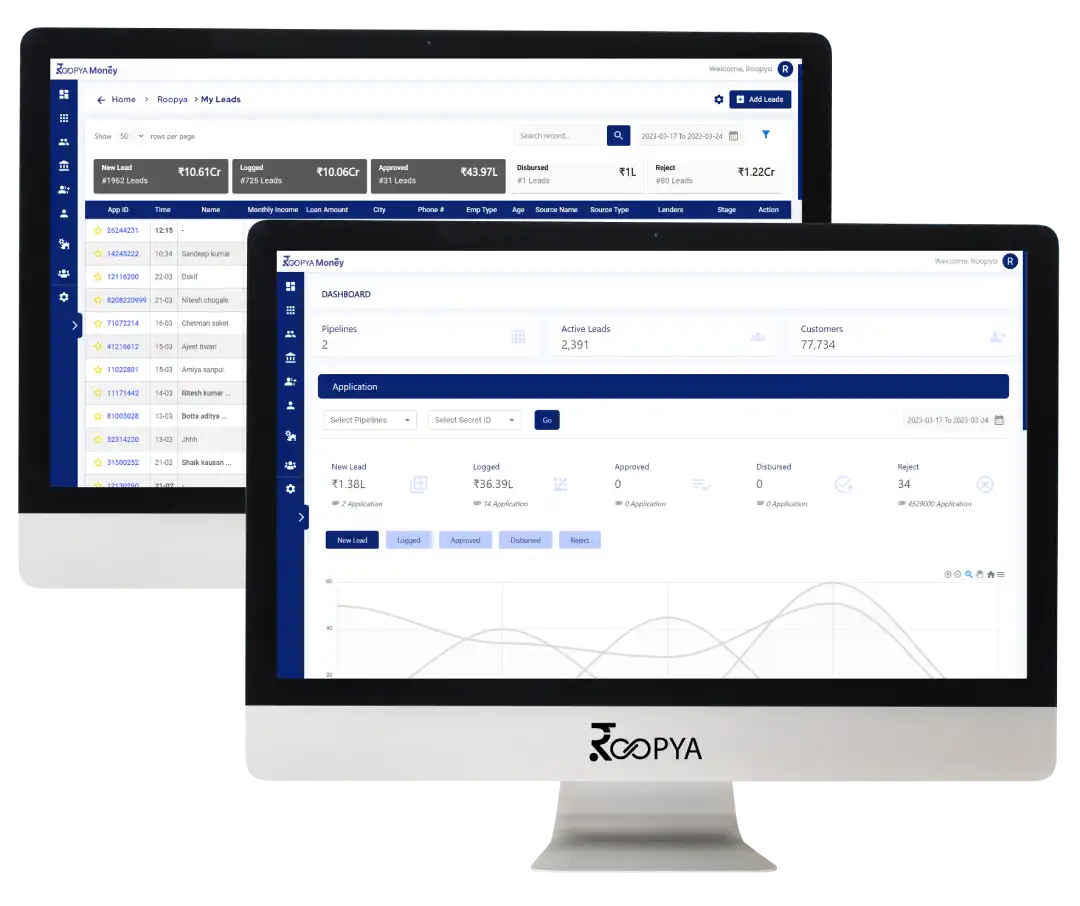India’s 1st Automated Fintech CRM with Decision Making Engine

Roopya is a cloud based platform which helps Lenders to Originate and Underwrite loans starting from Customer Onboarding, LSP Onboarding, Disbursal Stage Management, Multi Bureau Connection, Scorecard, BRE, KYC.

What is Fintech CRM?
Fintech CRM (Customer Relationship Management) refers to the use of technology and software in the financial services industry to manage customer interactions and data. It’s designed to help financial companies build relationships with their customers, manage customer data, and streamline processes to improve customer service.
Fintech CRMs typically include features such as:
Contact management: Store and manage all customer interactions, including email, phone calls, and in-person meetings.
Lead management: Automate lead capture and management processes to increase sales efficiency.
Marketing automation: Use targeted marketing campaigns to reach customers with personalized content.
Sales force automation: Streamline sales processes, from lead generation to closing deals.
Reporting and analytics: Gain insights into customer behavior and sales performance to inform business decisions.
Fintech CRM systems can help financial companies improve their customer experience and increase customer satisfaction, which can lead to increased customer loyalty and business growth.
